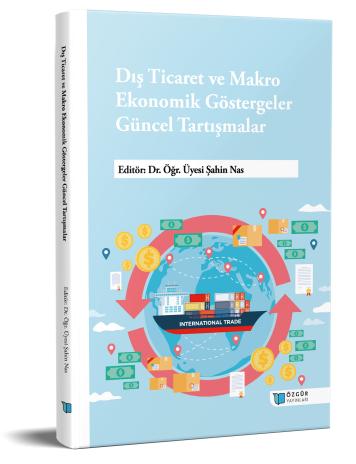
An Empirical Analysis on the Relationship between Trade Openness and Economic Growth in Türkiye
Chapter from the book:
Nas,
Ş.
(ed.)
2025.
Foreign Trade and Macroeconomic Indicators Current Debates.
Synopsis
Protectionist policies in international trade and Turkey's trade liberalization have played a crucial role in shaping the country's economic landscape. Since the 1980s, Turkey has pursued more liberal trade policies, shifting from import substitution strategies to a free trade-oriented approach. This transition has inevitably influenced various macroeconomic indicators, particularly the trade balance. Assessing the effectiveness of trade liberalization and its broader economic implications presents a significant area of research. This study examines the impact of trade openness on economic growth in Turkey for the period 1991–2023 using the Cobb-Douglas production function. Economic growth is considered the dependent variable, while trade openness, capital accumulation, and employment are included as independent variables. The Augmented Dickey-Fuller (ADF) and Phillips-Perron (PP) unit root tests reveal that the variables exhibit stationarity at different levels, being either I(0) or I(1). Accordingly, the Autoregressive Distributed Lag (ARDL) bounds testing approach is employed. The findings indicate a long-run cointegration relationship at the 1% statistical significance level between the independent and dependent variables. In the long run, a negative relationship is found between trade openness and economic growth, while capital accumulation and employment exhibit a positive relationship with economic growth. Additionally, the short-run results are also found to be statistically significant. Although free trade remains a dominant paradigm in a globalized world, the protection of emerging industries, as suggested by the Infant Industry Argument, appears to be crucial for national economies.

